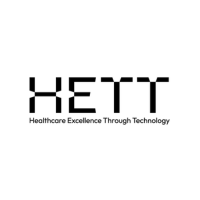Explore how AI technologies are poised to streamline operations, enhance patient care, and significantly cut down on the NHS backlog, offering pivotal insights for Clinical and Operational leaders to transform working practices, focusing more on patient care.
Understanding the NHS Backlog: Scope and Impact
The potential of Artificial Intelligence (AI) to revolutionise healthcare is immense, offering innovative solutions to streamline processes, enhance patient care, and ultimately reduce these backlogs. This blog explores the latest insights and guidance from the Medicines and Healthcare products Regulatory Agency (MHRA), the National Institute for Health and Care Excellence (NICE), and leading digital health experts, presenting a strategic overview for Chief Information Officers (CIOs) and Chief Clinical Information Officers (CCIOs) in the NHS.
According to recent data, millions of patients are waiting for treatments, with some facing potentially harmful delays. Addressing this backlog requires not just incremental improvements but transformative changes—this is where AI comes in.
Exploring AI Applications in Healthcare
AI encompasses a range of technologies, including machine learning, natural language processing, and computer vision, which can analyse large datasets, identify patterns, and make predictions with remarkable accuracy. In the context of the NHS, AI applications can be broadly categorised into:
- Diagnostics and Imaging: AI algorithms can rapidly analyze medical images, reducing the burden on radiologists and speeding up diagnosis times.
- Predictive Analytics: AI can predict patient outcomes, enabling proactive interventions and better resource allocation.
- Operational Efficiency: AI-driven systems can optimise scheduling, manage patient flow, and streamline administrative tasks.
- Personalised Medicine: AI can tailor treatment plans based on individual patient data, improving outcomes and reducing unnecessary interventions.
Strategic AI Implementation: Guidelines from MHRA and NICE
MHRA: The Medicines and Healthcare products Regulatory Agency has established guidelines for the safe and effective deployment of AI in healthcare. These guidelines emphasise:
- Rigorous Testing: AI systems must undergo extensive clinical validation to ensure accuracy and reliability.
- Continuous Monitoring: Post-deployment monitoring is essential to detect and address any issues promptly.
- Transparency and Explainability: AI algorithms should be transparent, with clear explanations of their decision-making processes.
NICE: The National Institute for Health and Care Excellence provides a framework for evaluating the cost-effectiveness and clinical impact of AI technologies. Key considerations include:
- Clinical Effectiveness: AI applications must demonstrate clear clinical benefits over existing practices.
- Economic Impact: The cost of implementing AI
Challenges and Ethical Considerations in AI Deployment:
One of the key challenges in deploying AI in healthcare is ensuring data privacy and security. With sensitive patient information being processed by AI algorithms, there is a crucial need to safeguard against data breaches and unauthorised access. Implementing robust encryption protocols and compliance with data protection regulations are essential steps to address this challenge.
Another challenge is the potential for bias in AI algorithms, which can lead to disparities in patient care. It is important to continuously monitor and audit AI systems to ensure fairness and equity in decision-making processes. Additionally, transparency in how AI algorithms are developed and trained can help mitigate bias and promote trust among patients and healthcare providers.
Ethical considerations also play a significant role in AI deployment. Balancing the benefits of AI technologies with ethical principles such as patient autonomy, beneficence, and non-maleficence is crucial. Healthcare professionals must navigate complex ethical dilemmas, such as the use of AI in end-of-life care decisions or the impact of AI on the doctor-patient relationship.
Addressing these challenges and ethical considerations requires a multidisciplinary approach, involving collaboration between healthcare providers, data scientists, ethicists, and policymakers. By proactively addressing these issues, healthcare organisations can harness the full potential of AI technologies while upholding ethical standards and ensuring patient safety and well-being.
Future Prospects: AI's Role in Reshaping NHS Efficiency
As we look towards the future, the role of AI in reshaping NHS efficiency is promising. With continued advancements in technology and an increasing focus on innovation, AI has the potential to revolutionise the way healthcare is delivered. By leveraging AI applications in diagnostics, predictive analytics, operational efficiency, and personalised medicine, the NHS can streamline operations, improve patient outcomes, and ultimately enhance the overall quality of care.
AI technologies have the capability to transform the healthcare landscape by automating repetitive tasks, reducing administrative burdens, and enabling healthcare professionals to focus more on patient care. With AI-driven systems optimising scheduling, managing patient flow, and tailoring treatment plans based on individual patient data, the NHS can operate more efficiently and effectively.
Furthermore, with guidelines from regulatory bodies such as MHRA and NICE in place to ensure the safe and effective deployment of AI in healthcare, the future prospects of AI in reshaping NHS efficiency look promising. By addressing challenges related to data privacy, bias, and ethical considerations, healthcare organizations can harness the full potential of AI technologies while upholding ethical standards and ensuring patient safety and well-being.
In conclusion, the future of AI in the NHS is bright, with the potential to significantly cut down on backlogs, enhance patient care, and streamline operations. By embracing AI technologies and proactively addressing challenges, the NHS can transform working practices, focus more on patient care, and ultimately improve the overall efficiency and effectiveness of healthcare delivery.
Want to hear more from experts leading the charge in AI? Join us at HETT Show 2024, 24-25th September to discuss more on the future framework for safe AI and the impact the workforce using the tools and technologies to enhance care.
%20(1).png?width=500&height=58&name=HETT%20insights%20logo%20RGB-04%20(1)%20(1).png)


